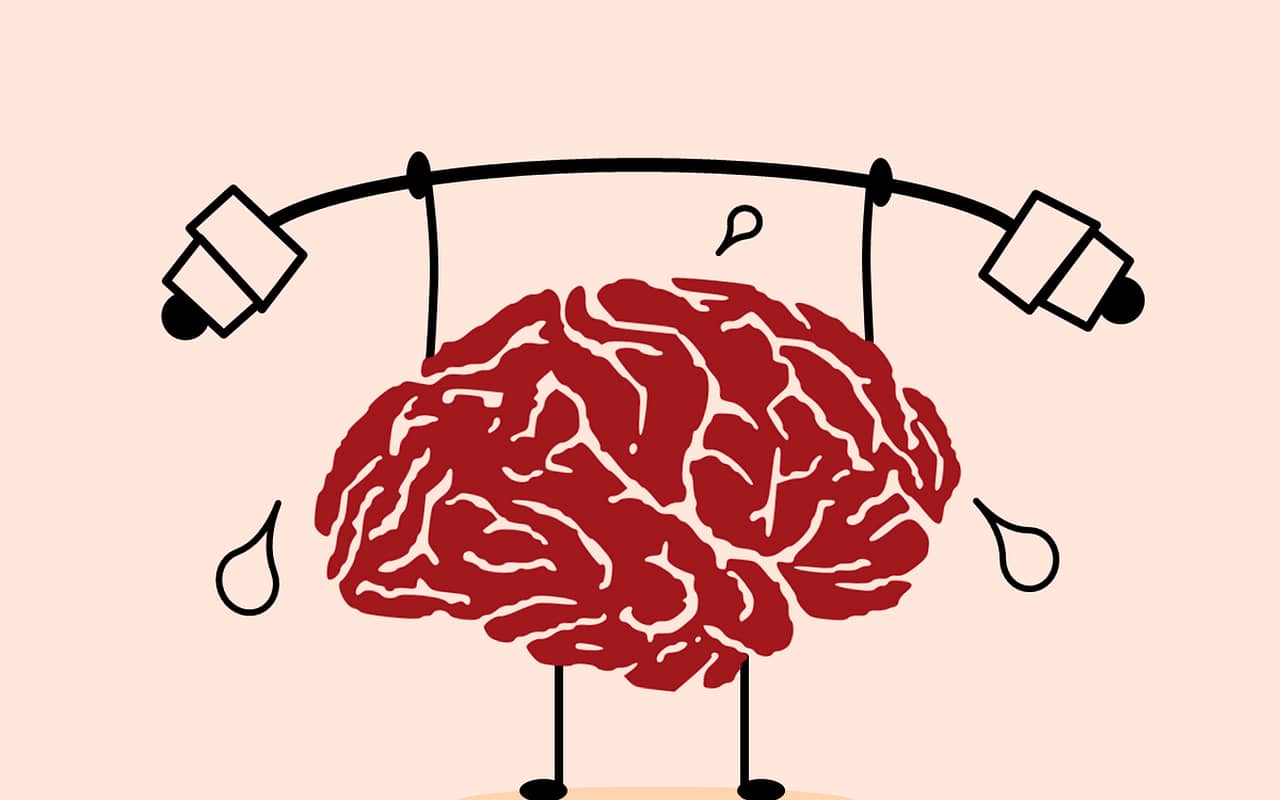Podcast: Download
Subscribe: Apple Podcasts | RSS
 Can you guess how many benefits of critical thinking you’ll enjoy along your journey of mental mastery?
Can you guess how many benefits of critical thinking you’ll enjoy along your journey of mental mastery?
The number is huge and here’s why:
The value of learning to think critically compounds over time.
In fact, the more you practice, the more positive outcomes you’ll experience.
So let’s dive into these benefits and point out some tips that you probably haven’t applied before.
The best part?
We’ll exercise our critical thinking skills as we go as I demonstrate a few ways I’ve used critical thinking myself.
Why Is Critical Thinking Important?
See what I just did there?
I asked a question to demonstrate the first major benefit.
Asking and knowing why something matters helps you:
- Place it in context
- Learn about its history
- Unpack and analyze its parts
For example, we know that human civilization only really starts going when people started to think.
And that probably only became possible because our ancestors discovered how to irrigate land for farming.
Although human history is obviously more complex than that, it’s also pretty simple: If you don’t have to spend all your time hunting and foraging for food, you can rest and think more.
The more you can rest and think, the more you can think about maximizing your free time, which is ultimately what gave rise to the Internet we’re using to communicate with each other now.
This means that more free time and better communication between people make critical thinking so important.
Why?
Because the better you get at thinking critically, the more free time and better communication you will enjoy.
I expand more on the reasons why critical thinking is so valuable and has been personally useful for me in this video tutorial:
11 Incredible Benefits Of Critical Thinking
The following list of the benefits you can expect from thinking more critically are in no particular order of importance.
But that doesn’t mean they can’t be ordered. You can benefit a great deal by thinking through which of these benefits you feel are the most important. Use ordering as a means of practicing your objective reasoning skills.
One: Critical Thinking Gives You Practice In Multiple Disciplines
Want to be able to think faster?
Use “mental rotation.”
When I was in university, and even to this day, I used this critical thinking skill.
Here’s how it works:
Let’s say you are given a problem to solve, such as inner city poverty.
It’s a huge benefit when you can look at the problem from several perspectives, rather than just one. For example, you can mentally rotate through:
- Political perspectives
- Psychological perspectives
- Biological perspectives
- Ethnographic perspectives
- Historical perspectives
- Economic perspectives
- Ethical perspectives
- Etc.
The critical thinking benefits of “rotating” through these perspectives happen because they exercise your thinking skills. As your perspective grows, you can spot more possible options for the next benefit.

Two: Avoid Unnecessary Problems
The more perspectives you have, the more models you can mentally navigate. These models (like the ones listed above) help you imagine different outcomes.
Essentially, you enable yourself to create multiple versions of the W.R.A.P. technique taught in the training on ars combinatoria, an early critical thinking tool you might want to explore. It’s just one of several critical thinking strategies you’ll want to learn.
Of course, not all problems are avoidable, and it would not be appropriate to think critical thinking will create some kind of friction free paradise.
But although some decisions will always create new issues, you can seriously reduce the negative impact of those decisions in advance simply by thinking things through with the widest variety of mental tools you can find.
Three: Brain Exercise
You get brain exercise from critical thinking for a few reasons.
When you shift through multiple perspectives, you’ll be promoting cognitive switching. Research shows that this mental movement is the healthy equivalent of walking for your heart and lungs. Only in this case, the benefits are directed at your brain.
In this case, you’ll be getting even more benefits thanks to how critical thinking gets used in conversations. For example, a fit brain is much more likely to use objective reasoning and avoid the traps of subjective reasoning.
Here are more brain exercises I think you’ll enjoy.
Four: Personal Time Expands
Now, we’ve talked about how critical thinking was used to help entire societies expand their free time. This works at the individual level too.
For example, if you run an online business and want more free time, nothing will help you faster than applying critical thinking skills to how you can release yourself from certain tasks.
If you’re a student, you can learn techniques like interleaving, just one way of several authentic ways to read faster.
But, if you don’t have critical thinking skills to help cut through the rubbish and pseudoscience out there, you could wind up losing time instead of gaining it.
Five: Communication And Your Use Of Language Improves

Like any area of skill, you will learn new vocabulary when you study critical thinking.
New words directly lead to improved language abilities.
Plus, you’ll gain a sense of which kinds of words and phrases to use in which contexts.
Linking thinking with better use of language has always been part of the memory tradition we discuss on this blog. It goes back at least as far as 90 BCE where it was codified in Rhetorica ad Herennium.
Six: Scientific Living Improves Health
When you use your mind well, you’ll be able to make much better decisions related to your health.
For one thing, instead of always taking your doctor’s word for it, you’ll learn to understand the math behind their decisions and decide just how much it applies to you.
This relates to the use of language as well. For example, how many people know that “doctor” is the Latin word for “teacher.”

If you start to think about your own medical professionals in this light and treat them as the starting point for educating yourself, you’ll probably make much better health decisions.
Plus, when you know word origins like this, an important skill for critical thinkers, you’re able to think faster on your feet.
That is very beneficial for our text major set of benefits:
Seven: Catch Yourself In Conversations
How many times have you found yourself in a loop of self punishment after saying something you regretted?
According to psychoanalysts like Robert Langs and Robert Haskell, we “encode” unconscious ideas in how we speak.
Now, some critics think these thinkers were reaching after hidden meanings that aren’t there. Although it is true that some of the evidence presented by both is questionable, at least in Langs’ case, he was protecting the identities of his clients.
I feel that Langs has compelling ideas and one of the issues he faces is simply that his theory attempts to account for criticisms leveled at it. As a result, there is a history of people going on the attack rather than having a decent conversation about the topic.
And that’s said because if Langs is even remotely correct, we could all stand to reduce a lot of unnecessary problems from our lives by holding our tongues in advance, rather than feeling badly about the innuendo encoded in our speech later.
Eight: Intellectual Honesty Increases
I give the Langs example because the contemporary world is filled with bad actors willing to criticize theories or ideas they haven’t fully explored or tried.
That leads to intellectual dishonesty and it harms many people.
But if you’re willing to admit that you haven’t looked at something enough to think critically about it, you do everyone a favor. You also save yourself a huge amount of time and energy because you don’t have to backtrack, watch your back or have part of your brain monitoring the environment for threats created by a lack of integrity.
Nine: Critical Thinking Promotes Independence
People who fail to acquire the advantages of critical thinking never experience as much independence as they could.
Obviously, we always want to consult others. That need is never going to go out of fashion.
But there are many situations in life where we simply don’t have the luxury of getting a second opinion. And when that happens, we want to be able to rely upon ourselves.
The problem is… what if you can’t remember how to use the tools of critical thinking?
Don’t worry. I’ve got you covered. Or at least, I’ll do my best as you complete this free course:
Once you can remember the critical thinking tools and perspectives you’d added to your mental toolkit, you can use the same Memory Palace technique to train yourself to use them almost on autopilot.
Ten: Better Career
Who enjoys the best jobs on the market?
The people who can think on their feet and consistently make great decisions.
Not only that, but they’re able to accomplish other lifestyle goals a lot faster because they have great careers.
Think about it. When you have a great job, you’ll enjoy:
- Better salary
- Gold standard health insurance
- Retirement packages
- Company perks like travel expenses and a car
- Nicer offices to work in
- Closer access to higher level colleagues
- The pleasures of contributing more, etc.
Eleven: Everyone Becomes A Better Citizen Of Planet Earth
Of course, you don’t have to be (or even want to be) a top level employee or executive manager.

You can enjoy the benefits of contributing to your fellow humans no matter what roles you choose in life.
Merely by learning the importance of critical thinking and applying it in daily life, you will be helping other people.
How To Improve Critical Thinking Quickly
All of these benefits sound nice, don’t they?
They certainly are, but they beg the question… how do you get better at critical thinking without having to spend years at university like I did?
As someone who taught critical thinking as a professor for several years, here are my best suggestions:
Ask Questions Relentlessly
Merely by asking questions, you will exercise your critical thinking faculties.
I actually use a simple model I teach in this tutorial on using a Memory Wheel. It’s based on a questioning model introduced by the philosopher and memory expert Giordano Bruno during the Renaissance.
You literally string the most important questions up on a wheel you create in your mind and rotate through them. It’s a lot of fun and will help you think through things critically in a structured manner.
You can also practice Socratic questioning, which is used to help you explore the logic underlying how other people think and make decisions.
Whatever method you choose, question everything. It’s one of the best critical thinking strategies I know.
Stay Curious At All Costs
Did you know that researchers have found that curiosity tends to go down as we age? This study suggests that curiosity shrinks as we age because we tend to need to conserve our energy compared to when we’re younger.
Although that might be a natural process, it doesn’t mean you can’t manually cause yourself to continue being curious.
I’ve had to attend to this issue myself. First, I worked on my mental strength using these strategies. That way, I became less likely to cave into pre-judging things instead of approaching them with maximum curiosity.
And because critical thinking is so important, I completed various learning projects that were somewhat against my inclination. For example, as I shared in my TEDx Talk, I used to be a militant atheist.
To make good on the mental strength tactics that helped me remain open to various other forms of thinking, I memorized some scripture and even a bunch of Sanskrit phrases.
I really can’t exaggerate the value of having opened my mind in this way. My only wish is that I’d gotten started sooner. I’m confident that will be your wish too when you work on improving your openness and curiosity.
Get Familiar With Your Biases
Unfortunately, all humans are biased. In fact, there are memory biases that can contribute to being close-minded and lacking in curiosity.
To combat these, everything starts with educating yourself about bias. Then, commit to change, or at least keep an eye out for how they might be shaping your behavior. If you can spot them, you can think critically about them.
Practice Active Listening
In our world of shattered attention, it’s easy to engage in conversations without actually listening to what people are saying.
That’s a shame, because this study shows how easily people perceive when you’re not listening to them. That will condition the kinds of answers they give you during conversations.
To improve in this area myself, I started repeating what people are saying in my mind. This simple action kept me focused without mind wandering. I’ve had much more to think about critically as a result – and much better outcomes from my discussions.
It’s very helpful for remembering conversations too.
Engage in Friendly Debates
Often we avoid debating one another. However, I believe this is a mistake – it’s not like you have to engage in debate prep to improve your critical thinking while discussing with others.
The key is make sure you keep it friendly. I personally practice letting go of the outcome, which means not wanting or needing to win.
That way, I can enjoy breaking issues down and simply practicing the various angles involved as my friends challenge my assumptions.
Debates are a fantastic way to practice problem-solving too. You just need to pick unsolved problems to debate over so you can think through various ways you might attempt to solve important issues.
How Many More Benefits Of Critical Thinking Do You Want?
As you can probably tell, there’s a fair amount of crossover between these benefits.
And that means you can expect a lot more than eleven benefits as you practice critical thinking in your daily life.
I know because I taught a fourth year Critical Thinking course for several years as a professor.
I saw many students experience all of the benefits on this page and more.
If I were to sum it up in one word, it would be that they flourished.
This means that they were more than happy. They enjoyed an abundance of positive rewards, and all because they took a bit of time to learn how to think better.
So what do you say? Are you ready to start practicing your thinking skills? Let me know in the comments section and together we can contribute so much to the world.
Related Posts
- 9 Critical Thinking Strategies That Lifelong Learners Need To Know
Reading on its own is not enough. You also need critical thinking strategies. Here are…
- 7 Critical Thinking Examples That Will “Bulletproof” Your Mind
Real life critical thinking examples are hard to come by. This post gives you 7…
- 5 Critical Thinking Quotes That Will Instantly Sharpen Your Mind
Most critical thinking quotes have nothing to do with the critical part. These 5 quotes…
- 9 Deadly Critical Thinking Barriers (And How to Eliminate Them)
Most barriers to critical to critical thinking are easily removed. Read this post to boost…










2 Responses
I love to make critical thinking a part of my life, I love to think between lines. My name is Stanley Joseph Dean.
Thanks for stopping by, Stanley.
Critical thinking is indeed a great thing to do and helps with reading between the lines.